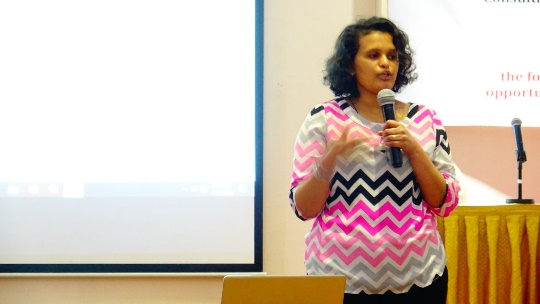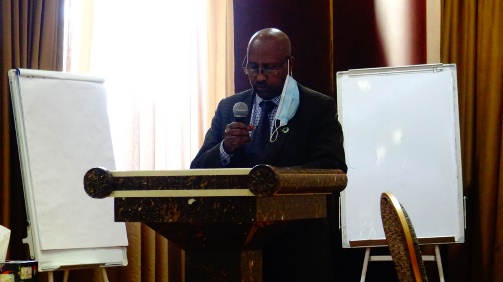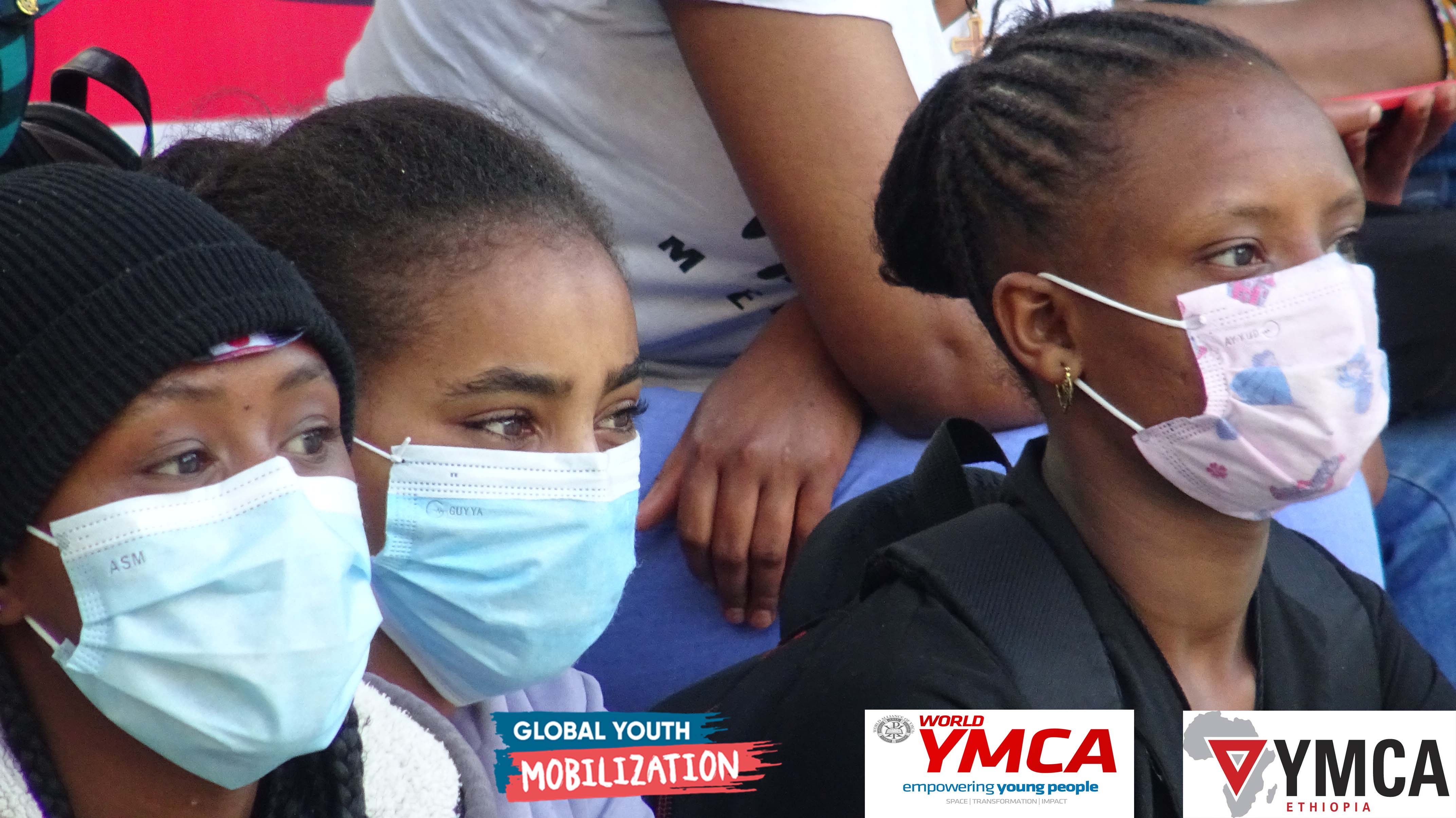Name of the project: Prevention of COVID- 19 pandemic among the most at risk population in Addis Ababa.
Partnership: World Alliance of YMCAs
Description of the project
The project aims at awareness on COVID-19 among young domestic workers on COVID-19 and help those who are out of business due to the pandemic. The project organizes educational session and food support to the target group. In addition to this, 50 young female domestic workers empower through life skill based technical and vocational skill training mainly food preparation and hospitality training. Young people ae at the heart of this project and play a pivotal role in mobilization and implementation.
Young Men’s Christian Association (YMCA) Ethiopia organized a workshop to address on the impact of COVID-19 on youth in the informal sectors in November 3, 2020 at Capital Hotel – Addis Ababa.
A recent report published by Fridrich Ebert Stiftung on the Impact of COVID in the Informal Economy (2020) asserts that close to 90 per cent of the sub-Saharan African labour force works in the informal economy. Informal economy workers, who are mostly self-employed, are particularly vulnerable to health shocks since they are mostly not covered by social protection systems, earn their livelihood from low and irregular incomes, are not adequately represented in local and national governance structures, and are not protected by labour laws.
Ethiopia is one of the hard-hits countries with COVID 19 and it’s majority of labor force dwell in the informal sectors. In his opening speech, Mr. Ayalew Ahmed, Vice President of CETU said that the informal workers in Ethiopia could be at higher risk of losing their job due to COVID but they are less covered in the legal and social protection systems. Mr. Demisse, representing CETU, one of the panelist said that COVID would have tremendous impact on the informal workers, especially those work as street vendors, house maid, waitress, etc.

Informal economy workers and their families remain exposed to the virus even if they stay at home, because they often live in overcrowded and unsanitary conditions that make physical distancing virtually impossible. A lack of access to running water not only limits the possibilities for hand-washing, it often forces women to line up for water, thereby endangering themselves and their community. (ILO 2020a).
The overwhelming majority of workers in the informal economy have higher exposure to occupational health and safety risks because of the lack of appropriate protection, and thus an increased likelihood of suffering from illness, accident or death. COVID-19 adds to these risks. If they fall ill, most workers do not have guaranteed access to medical care or income security through sickness or employment injury benefits;
Ato Kassahun Mulatu, representative from Addis Ababa City Administration Trade and Industry Bureau presented that bureau has been making stride effort to minimize the occupational risks on the informal workers. As he said, the bureau has been taking some measures such as training, awareness on COVID, hygiene supplies, facilitating better work place for street vendors, Janmeda, etc among the measures taking place by the bureau.

Four Youths who work in the informal sector gave their testimony on how covid impacts their work as most of them admitted there business is at higher risk and disclosure due to COVID and related challenges.
Participants of the workshop share their reflection and make suggestions including the need to have in-depth study on the impact, sustain dialogue and experience sharing, collaboration and networking through forming alliance of decent work (as suggested by YMCA and it’s partners) was among the take homes from the workshop.





 The Young Men's Christian Association, YMCA is a worldwide organization based in Geneva, Switzerland, with more than 2 billion beneficiaries from 125 national associations.
The Young Men's Christian Association, YMCA is a worldwide organization based in Geneva, Switzerland, with more than 2 billion beneficiaries from 125 national associations.